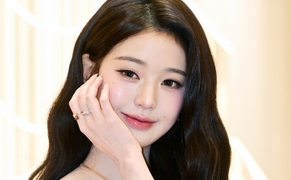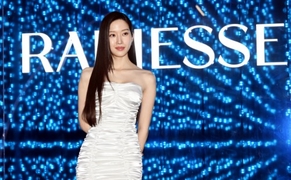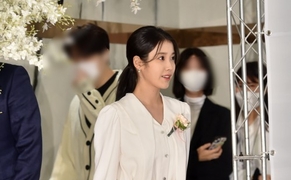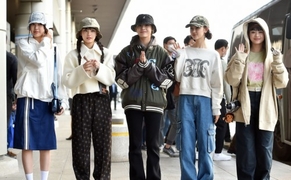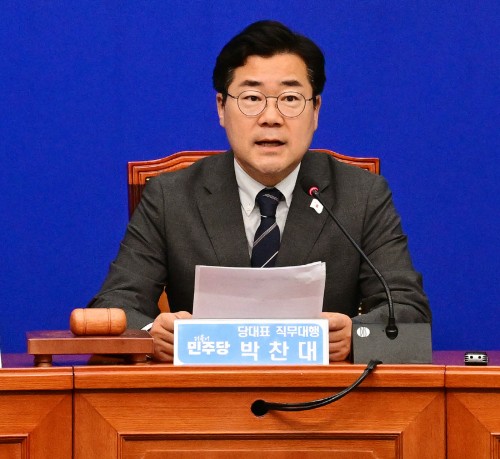 |
| Park Chan-dae, considered a leading contender for the Democratic Party's next leader / Photo by Lee Byung-hwa |
With Rep. Kim Byung-ki newly elected as floor leader of the Democratic Party, political attention is now turning to the question of who will become the party’s next chair. Though the term for the new leader is only one year, the symbolic weight of being the first party leader under President Lee Jae-myung’s administration is expected to make this one of the most competitive races yet.
Following President Lee’s resignation from the party chairmanship to run in the June 3 presidential election, the position has remained vacant. While party leaders typically serve two-year terms, this race will be held as a by-election, with the winner serving a single year. The next chair will be tasked with supporting the administration’s major policy agenda, managing party-government relations, and overseeing the crucial local elections scheduled for June next year.
Rep. Jung Chung-rae formally declared his candidacy on June 15 at a press briefing at the National Assembly, pledging to “usher in an era of party member sovereignty befitting the age of popular sovereignty.” Emphasizing his alignment with the Lee administration, Jung said, “The administration has changed, and the Lee Jae-myung Democratic government has been established. Our historic mission now is to swiftly end the national crisis and ensure the success of this administration. As party leader, I will fulfill that mission.”
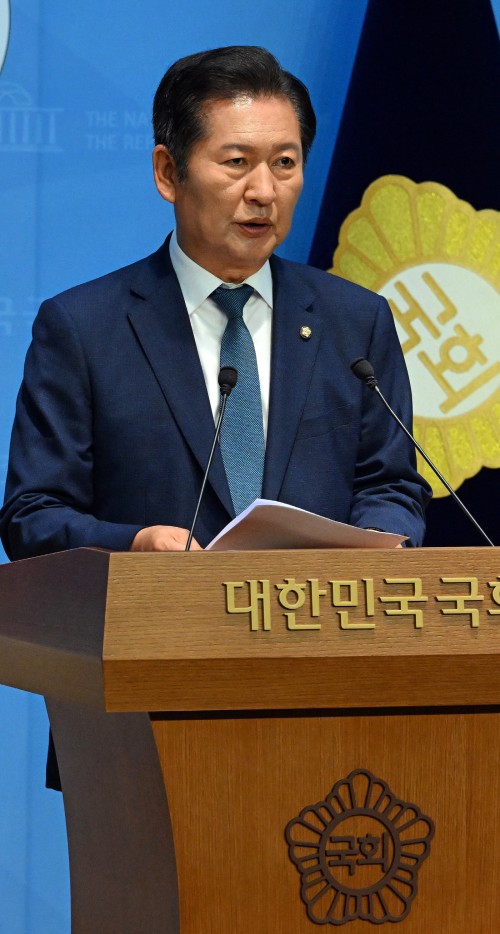 |
| Jung Chung-rae, a lawmaker of the Democratic Party, holds a press conference at the National Assembly on June 15 to officially announce his candidacy for party leader. / Photo by Song Ui-joo |
Jung further stressed, “No one understands President Lee’s political philosophy better than I do. I will build the best possible party-government relationship and devote myself solely to the administration’s success.” He also promised to expand party members’ rights, unveiling reform proposals such as: increasing member participation in leadership elections, abolishing the delegate vote system, implementing a one-member-one-vote rule at the party convention, institutionalizing full-member voting, and expanding party rewards programs.
Jung previously served as the party’s senior deputy leader during Lee’s first term as chair. In the 22nd National Assembly, he chaired the Legislation and Judiciary Committee and led the impeachment panel during the proceedings against former President Yoon Suk-yeol.
Former floor leader Park Chan-dae is also being floated as a strong contender. In a farewell press conference on June 12, Park hinted at the possibility of entering the leadership race, saying, “I’m listening to a lot of voices and giving it serious thought. I’m reflecting on the new administration’s tasks, the party’s responsibilities, and my own duties as a lawmaker.”
Park ran unopposed in the Democratic Party’s floor leader election this May and was effectively elected by acclamation. During his tenure, he shared a dual leadership role with President Lee, guiding Democratic lawmakers through the December 3 martial law controversy and the impeachment crisis. He also served as chief campaign manager during the June 3 presidential election.
The party convention to elect the next leader is expected to be held as early as next month. This will be the first leadership race to implement a runoff voting system.
Most Read
-
1
-
2
-
3
-
4
-
5
-
6
-
7

















